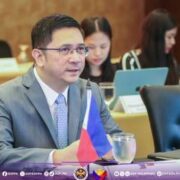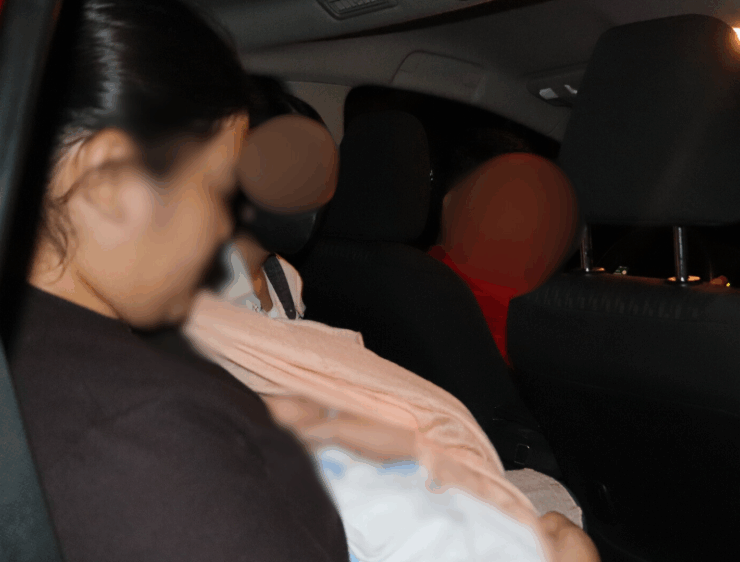Coalition of the unwilling

It began with a reunion and ended with a dispersal. The reunion was of former vice presidents on the 90th anniversary of the vice presidency as an institution. Those who decided to be present (former Presidents Gloria Macapagal Arroyo and Joseph Estrada) made a statement just like those who were absent (former Vice Presidents Teofisto Guingona Jr., Noli de Castro, Jejomar Binay, and Leni Robredo), happening, as it did, on the eve of a widely anticipated anti-administration and pro-Duterte mobilization. The dispersal was Sen. Imee Marcos’ self-disownment from the Marcos clan and the Iglesia ni Cristo (INC) faithful seemingly hastily beating a path to the exit, making the INC multiday mobilization end in a whimper instead of a bang.
The jury is out on whether the INC mobilization was in aid of pressuring the administration for concessions, or part of a wider effort to seriously kneecap the administration, or both. Leading up to the INC multiday protest, there were too many old faces from the Arroyo and Duterte dispensations, too many competing messages, and therefore, too many opportunities for conspiracy theories to thrive, for the leadership to be comfortable: Why else would they exclude some Duterte loyalists from rallying with the flock? As it turned out, trying to limit the exposure of politicians during the protests to a speech by Sen. Rodante Marcoleta failed when Imee Marcos was accommodated—the INC leadership, which has had its own headaches from family members who caused a schism, and thus cannot be seen as tolerating family dissent—was widely perceived to have pulled the plug on the protests after the President’s sister broke deeply-held taboos against turning internal grievances into public scandal.
The public itself, through all this, seems inclined to maintain its post-Edsa Dos behavior: it has remained, ultimately, pragmatic, as it was after the “Hello Garci” scandal when it loathed then President Arroyo but feared even more the disruption should she be deposed; it nurses its grievances, but reserves its energies for elections as the least dangerous means to change direction and exact accountability. By doing so, the message it has been consistently sending for a generation is that it (the public) respects mandates, and here, the President’s 2022 mandate remains a historic one unmatched in the entire Fifth Republic.
There is also the question of institutions: they have cast off the messianic adventurism of a generation ago. Just as two institutions, the armed forces and our diplomatic service, blunted the impact of former President Rodrigo Duterte, so too have they provided a backbone to the current dispensation. This is a coup-resistant military and a diplomatic service in a position to inform foreign observers of what’s at stake should a China-oriented administration replace the current one. Add to this the moral rejuvenation of the Catholic hierarchy, with a new generation of prelates taking over from their predecessors compromised by cozy complicity with the Arroyo administration, and you have a kind of near-restoration of the post-Edsa democratic guarantors. All that’s lacking (perhaps never to be regained) is political leadership imbued with the public standing to serve as a kind of guarantor of democratic legitimacy: here, there may be evolution, of a kind, with movements taking the place of personalities.
The President and his people, for their part, are trying to maintain the political momentum the chief executive seized during his State of the Nation Address: the political timetable—the schedule of coming cases—is being set by institutional players, with a target list of big personalities. The Cabinet revamp, well-leaked ahead so that when it happened it didn’t surprise, is part of this process: (nearly) everyone, it seems, is expendable.
What all this does is put those inclined to be critical of the current dispensation on the defensive.
The battle for 2016 inspired a coalition of the endangered–the Marcoses, Estradas, and Arroyos, confronted with the nightmare scenario of an additional six years of a reform administration—to coalesce around Duterte to prevent their temporary detention from becoming permanent. The battle for 2028 is seeing the formation of a similarly motivated coalition self-evidently fighting for its political life: led by the Dutertes (the patriarch detained in The Hague, the daughter facing a renewed possibility of impeachment plus Ombudsman cases); with the Arroyos (humiliated and diminished under the Marcos restoration); the Estradas (ditto); former Ilocos Sur Gov. Luis “Chavit” Singson (pyrrhic was his victory over nemesis Charlie “Atong” Ang, who lost “e-sabong” without Singson and friends getting it instead); the INC (apparently displeased over too little deference from the Palace); and a growing number of national, local, and bureaucratic personages facing the prospect of spending the holidays—or longer—in detention.
That few are willing to burn down the barn to capture some—or many—rats doesn’t mean a reckoning isn’t on the horizon. It just means the rats who hoped that torching the barn might actually help them escape are out of luck.
—————-
Email: mlquezon3@gmail.com; Twitter: @mlq3





















Cultural renaissance in Bohol, Cebu, and Iloilo